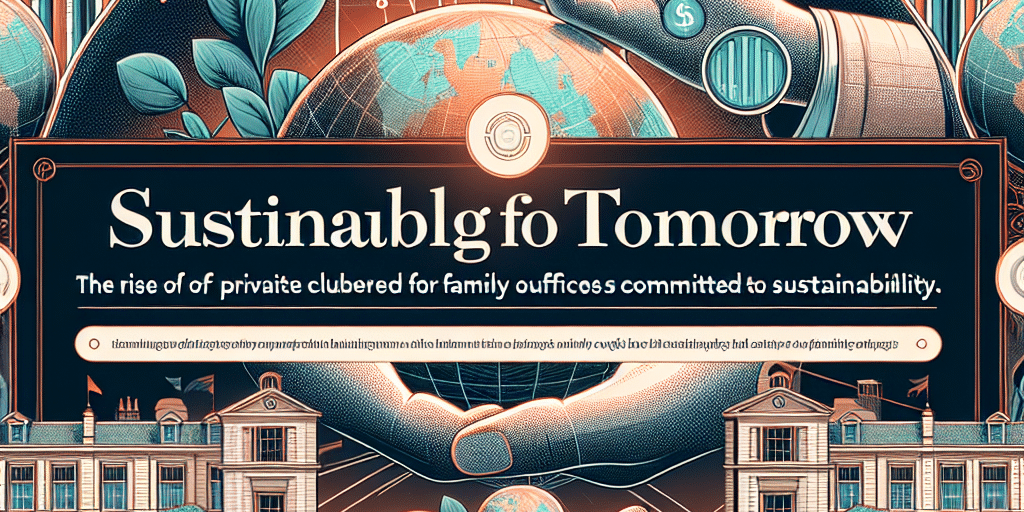In an era where global challenges such as climate change and social inequality have taken center stage, the investment landscape is evolving. Family offices are increasingly seeking avenues that not only promise financial returns but also contribute positively to the world. Enter private investment clubs designed specifically for families committed to sustainability.
What are Private Investment Clubs?
Private investment clubs are exclusive groups that pool resources and share knowledge to invest in innovative ventures. Unlike traditional investment routes, these clubs often focus on niche markets where sustainability and social impact are at the forefront.
The Appeal of Sustainability
Investing in sustainable projects is not just a moral choice; it has become a strategic one. The following are some reasons why family offices are increasingly attracted to sustainable investments:
- Long-term Viability: Sustainability often aligns with future market trends, making these investments more resilient.
- Positive Brand Image: Investing in green initiatives enhances a family’s public profile and legacy.
- Impact Investing: The desire to create a positive social and environmental footprint is a significant motivator.
The Growth of Tailored Private Clubs
Private clubs tailored for family offices dedicated to sustainability are on the rise. These clubs allow families to collaborate, share insights, and co-invest in projects that reflect their shared values. Some notable characteristics include:
- Exclusive Access: Members gain entry to unique investment opportunities that may not be available to the general public.
- Expert Guidance: Many of these clubs partner with experts in sustainable investing, providing members with valuable insights.
- Networking Opportunities: Joining a club gives families the chance to meet like-minded individuals and strengthen their investment strategies.
Examples of Successful Sustainable Investment Clubs
Several clubs have emerged at the forefront of sustainable investing. For instance, organizations like Evergreen Ventures and Impact Partners focus on projects that address climate change while generating viable returns.
Challenges Ahead
While the rise of these clubs presents exciting opportunities, challenges remain. Issues such as regulatory hurdles, technology gaps, and the need for standardized practices can hinder growth. Moreover, the risk associated with emerging markets requires careful evaluation to ensure that members achieve their financial and ethical goals.
Conclusion
As family offices strive to leave a positive impact on the world, private investment clubs that focus on sustainable opportunities represent a promising frontier for responsible investing. The investment community is increasingly recognizing that a commitment to sustainability is not only beneficial for the planet but can also yield substantial returns. Investing for tomorrow has never been more urgent, and these tailored private clubs are leading the charge.











